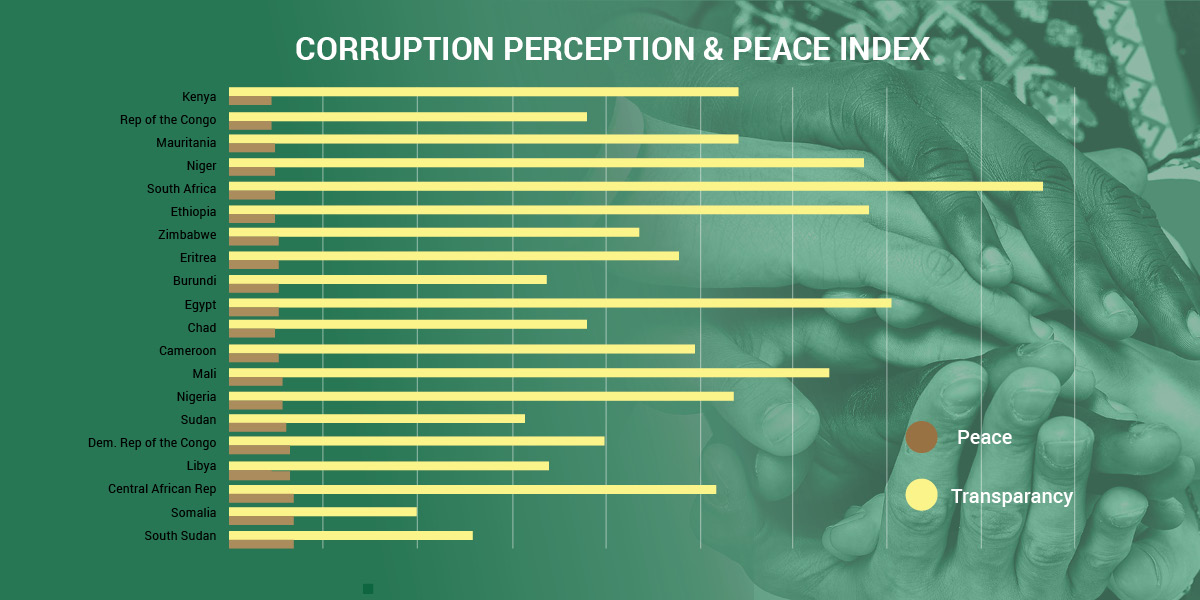Crisis situations, be it a natural disaster, humanitarian catastrophe or a pandemic, have a tendency to test existing socio-political relations across society. The relation between the State and its citizens is the most crucial, which in times of crisis could either be reinforced or severely eroded. The same goes for relations between the broader public and the private sector, as well as between the latter and State institutions.
There are several factors that could stand in the way of enhancing the trust between citizens and Institutions – in particular those associated with the State – when implementing measures to curb the spread of COVID-19 in several African countries. The ability of the State to communicate effectively and coherently about any measures being initiated, why they are being undertaken, and how long will they remain in place, would increase citizens’ confidence and trust. Given that we live in an information and digital age, a Government’s communication can be negatively affected by alternative and diversified sources of information. This notwithstanding, the failure of governments to constantly and consistently engage their citizens does more harm, and most likely contributes to conflict and tense situations that would otherwise have been avoided. The clearest example of this failure was seen in Mogadishu, Somalia, when the Mayor announced the decision to lockdown the city with immediate effect. The reaction from ordinary citizens was one of defiance, on the basis that the decision was conveyed abruptly, and did not provide them with sufficient time to prepare for a lockdown. Additionally, trust can also be diminished if State institutions fail to provide accurate information in a timely manner about the state of readiness to effectively respond to the spread of COVID-19 pandemic.
#C19ConflictMonitor: The most important factor that will determine how people are likely to respond to the #COVID19 measures introduced by governments to contain the virus is the degree of trust that citizens have towards their state
Tweet
In the context of COVID-19, the manner in which the security forces exercise their authority could go a long way towards firstly, bolstering citizens’ trust towards State institutions, and secondly, reducing the immediate and future cost of enforcing regulations. There are already concerning trends in some African countries of a heavy-handed response by security forces when interacting with and/or apprehending citizens accused of violating COVID-19 measures. Such incidents create a dilemma for State institutions as they have to grapple with how best to slow down and contain the spread on the one hand, while observing the rights of citizens on the other. These reported incidents, which are likely to increase, call upon various stakeholders, especially conflict resolution practitioners, to offer advice and innovative solutions to State institutions so that their much-needed interventions have the confidence and trust of the population. African countries responding to COVID-19 can draw lessons from Liberia’s experience during the Ebola crisis in 2014. Instead of imposing an unpopular army-backed lockdown in Monrovia, the Government changed tact by involving and allowing community leaders to design and enforce lockdown measures on the basis of their own understanding of local needs and dynamics of their communities.
In times of crisis there is a substantial increase in the number of ordinary citizens, especially in countries with high poverty levels, who rely on social support from the State in particular, and the private sector in general. The willingness of ordinary citizens to comply with current measures to curb COVID-19 will partly depend on their notions of fairness about the equitable distribution of various social support services. Incidents of unfairness, corrupt practices, and bias in the distribution of social benefits during a crisis, such as those already reported in South Africa, are more than likely going to erode the confidence and trust of the public towards State institutions. In addition, trust towards the private sector could be eroded as and when acts of unscrupulous and opportunistic behaviour intended to make maximum financial gains in the shortest possible period are uncovered. Reports of excessive pricing especially for essential goods and services in various African countries by the private sector exacerbates the risk of not only ordinary citizens being less compliant with COVID-19 measures, but of social tension and violence as they could resort to looting and other criminal acts to access their basic necessities. Conversely, swift action by State institutions, as already recorded for example in South Africa, and Kenya to deal with such unscrupulous acts reduces the risks of tension while increasing the confidence of the citizens.
One of the lessons from the Ebola outbreak in Liberia is that in times of crisis, ordinary people tend to have more trust in institutions and people their most familiar to or associated with, be it faith-based and religious leaders, local activists, and community-based organisations etc. State institutions must seize the opportunity presented by the COVID-19 crisis to build a broad social compact with community structures and local leaders, as part of a strategy to enhance the trust of ordinary citizens on the current efforts to flatten the curve.

